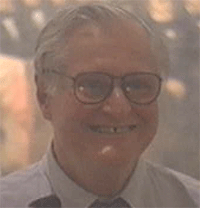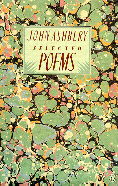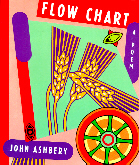NYS WRITERS INSTITUTE
HOME PAGE

 JOHN ASHBERY
JOHN ASHBERY
New York State Poet, 2001- 2003
"It is a great pleasure to be named the State Poet of New York. I've spent most of my life here, having been born in Rochester and raised on a farm near Lake Ontario. For most of the last 50 years I've lived in NYC, and spent time as well in the upper Hudson Valley. So I guess New York has always been home, all along, and now that it's official it feels even more so."
— John Ashbery
PROFILE
John Ashbery was born in Rochester, NY on 28 July, 1927. In 1949 he received his B.A. in English from Harvard, where he served on the editorial board of The Harvard Advocate and, (fitting for his selection as "Class Poet") wrote his senior honors thesis on the poetry of W.H. Auden. Ashbery then went on to complete an M.A. in English Literature from Columbia University in 1951.
Ashbery received immediate national recognition after the appearance of his first book of poems, Some Trees, in 1956. Published in the Yale Series of Younger Poets, this volume established Ashbery's style of creating highly original juxtapositions of words and images. As Douglas Crase observed in The Nation: "Ashbery has created a language that restores newness as you read, a language that is always cresting with potential like a wave."
Ashbery's twenty books of poetry include the collections Rivers and Mountains (1966), a National Book Award finalist; A Wave (1984), winner of the Lenore Marshall Poetry Prize; April Galleons (1987); Hotel Lautréamont (1992); Can You Hear, Bird (1995); Wakefulness (1998); Girls on the Run: A Poem (1999) and, most recently, Your Name Here (2000). His most celebrated single achievement, however, came in 1975 with the publication of the volume Self-Portrait in a Convex Mirror, which earned him the Pulitzer Prize, the National Book Award and, to complete a rare literary hat-trick, the National Book Critics Circle Award for Poetry.
Probably the most honored poet of his generation, Ashbery has also received the Bollingen Prize in poetry; the Robert Frost Medal from the Poetry Society of America; the Gold Medal for Poetry from the American Academy of Arts and Letters; a Guggenheim Fellowship and a coveted MacArthur Foundation Fellowship. In 1992 he was awarded the prestigious Feltrinelli Prize from the Academia Nazionale dei Lincei in Rome, an award which dates back to Galileo and whose recipients in the 20th century have included W.H. Auden, Thomas Mann, and Günter Grass.
Ashbery’s laurels rest on the enormous scope and variety of his poetic oeuvre, the originality of his vision and voice, and on the discernible influence his works have exerted on the poetry of his contemporaries. This influence is at once profound and far-reaching, extending beyond national, cultural or linguistic borders. His works, for instance, have been translated into more than fifteen languages. In his estimate of Ashbery's continuing significance to poetry, Harold Bloom noted in 1992 that: "At sixty-five, Ashbery follows Stevens and Yeats in the amazing trait of achieving fresh greatness as a poet, instead of ebbing or merely repeating himself. And more than ever, Ashbery seems to be to the second half of our century what Stevens and Yeats were to the first."
A widely acknowledged master of the long poem and the short lyric, as well as of the myriad modes and variations that fall among and between these poles, Ashbery has a special genius for the nuances of the American language. This is especially evident in the astonishing range of diction in his long poems. As critic David Young has observed in the Washington Post's Book World: "We must be ready for anything in reading Ashbery because this eclectic, dazzling, inventive creator of travesties and treaties is ready to and eager to include anything, say anything, go anywhere, in the service of an esthetic dedicated to liberating poetry from predictable conventions and tired traditions."
Ashbery's writings also include several plays, novels and distinguished works of literary criticism, as well as numerous English translations of French literature. He has also enjoyed a distinguished career as an art critic for the Paris edition of the New York Herald Tribune and Newsweek, and as editor of Art News. He is an authority, in particular, on the work of the late American realist painter Fairfield Porter.
In 1980 Ashbery became a member of the American Academy of Arts and Sciences, and in 1982 he was named a fellow of the Academy of American Poets, for which he was elected Chancellor in 1988. Formerly a distinguished professor of poetry at Brooklyn College and Harvard University, he has been the Charles P. Stevenson, Jr. Professor of Languages and Literature at Bard College since 1990.
"John Ashbery is an authentic inheritor of Walt Whitman and Wallace Stevens. Throughout his poetry, Ashbery constantly takes us on to what Emerson called 'the stairway of surprise.'" — Harold Bloom
Books by John Ashbery:








For additional information, contact the Writers Institute at 518-442-5620 or online at https://www.albany.edu/writers-inst.